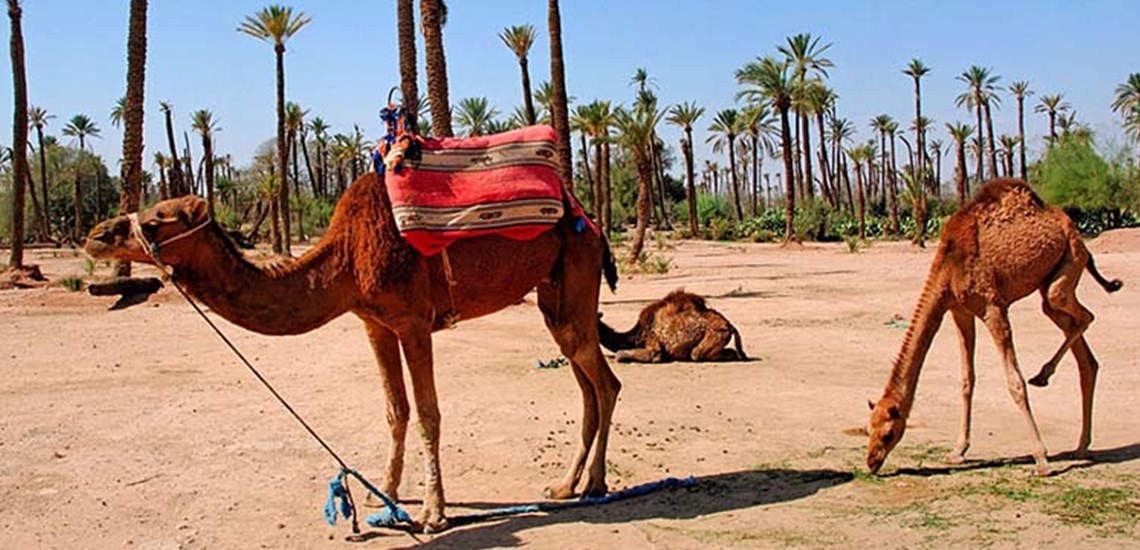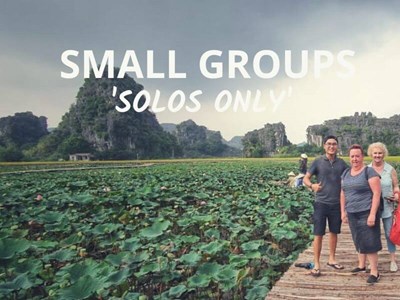Morocco
Travel to Morocco for an exotic holiday in the company of other single travellers. If it’s your first time in the country, you’re in for quite an experience. Juggle between the modern and the traditional by hopping on a plane or a train to Marrakech, where you’ll be transported to a city bursting with colours and flavours. Between the historical Medina and the beautiful Jardin Majorelle, there is plenty to see and do in this city. Even the Jemaa el-Fnaa itself, which is the largest traditional souk in Morocco, holds plenty of surprises and new experiences in store.
For all the wonders that Morocco brings, however, be mindful that if you are a woman walking alone, you will most likely be harassed by locals in the form of cat calls and hisses. Don’t feel targeted, as this is quite normal; but to avoid anything drastic, keep a low profile and dress conservatively.
- Location: Morocco, Africa
- Size: 446,550 km2
- Capital: Rabat
- Largest Cities: Casablanca, Rabat, Fès, Marrakech, Salé
- Climate: The best time to visit the country is in spring, which is from mid-March to May. Autumn (September through November) is also a good time to visit, as the temperatures tend to be more moderate. Summer and winter bring about extreme weather in most parts of the country.
- Population: Around 32.5 million people
Language: Arabic, Berber
Religion: Muslim, Christian
Literacy Rate: 61.5%
Government Type: Unitary parliamentary constitutional monarchy
Head of State: King
Land Borders: To the north, Spain; to the east, Algeria; to the south, Western Sahara
- Currency: Moroccan dirham
- Natural Resources: Phosphates, iron ore, manganese, lead, zinc, fish, salt
- Main Agriculture: Barley, wheat, citrus fruits, grapes, vegetables, olives; livestock; wine
- Main Industry: Phosphate rock mining and processing, food processing, leather goods, textiles, construction, energy, tourism
- Electricity: 127/220 V AC, 50 Hz
- Time Zone: GMT +00
Country Tel. Code: + 212
- Visa/Passport: For stays up to three months, visas are not required for Australian passport holders.
- Airport: The main entryway into Morocco is the Mohammed V International Airport (CMN), which is located in a suburb 30 kilometres away from Casablanca.
- Departure Tax: Travellers do not need to pay a departure tax when leaving Morocco.
- Getting Around: Trains and luxury buses are the best options for visitors. Local buses are available but may not be suitable for all travellers, as they are not air-conditioned and can be quite slow to reach the destination. Petit taxis can also be used for transport within a city (they are not allowed to leave city borders), while grand taxis are shared long-distance travel options with designated routes.
- Credit Cards: Credit cards are accepted in select businesses, though a processing fee may be added to the bill in certain cases.
- Drinking: There is no legal drinking age in the country, although one has to be 16 in order to purchase a drink.
- Shopping: Souks are a perfect place for buying Moroccan souvenirs, which include dates and date products, leatherware, argan oil, tajines, and carpets. Bargaining is expected and welcomed by vendors.
- Tipping: There are no specific guidelines for tipping in Morocco. What you give largely depends on what you feel like giving, although some “guides” might expect or demand tips, which is why it is important to gauge a person’s intentions before accepting help.
100% Australian; we 'get' the Australian travel style. And, better still, our arms are open to welcome our friends from other countries around the world, who'd like to travel with friendly Aussies.©
We've been creating and delivering the best ever holidays for solo travellers since 2006. As a boutique tour operator, we delight in detail, delivering personal service and finding your next best memory.©

